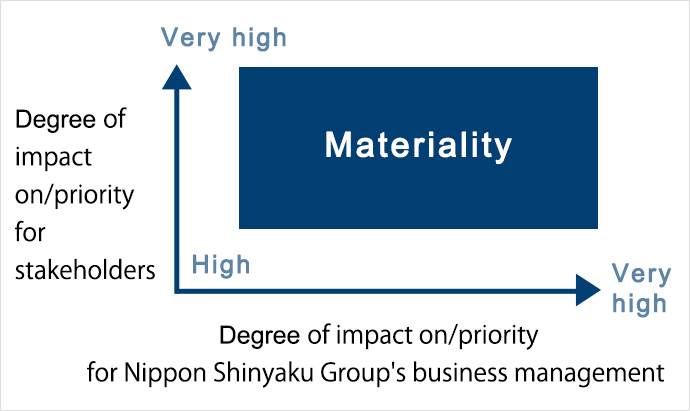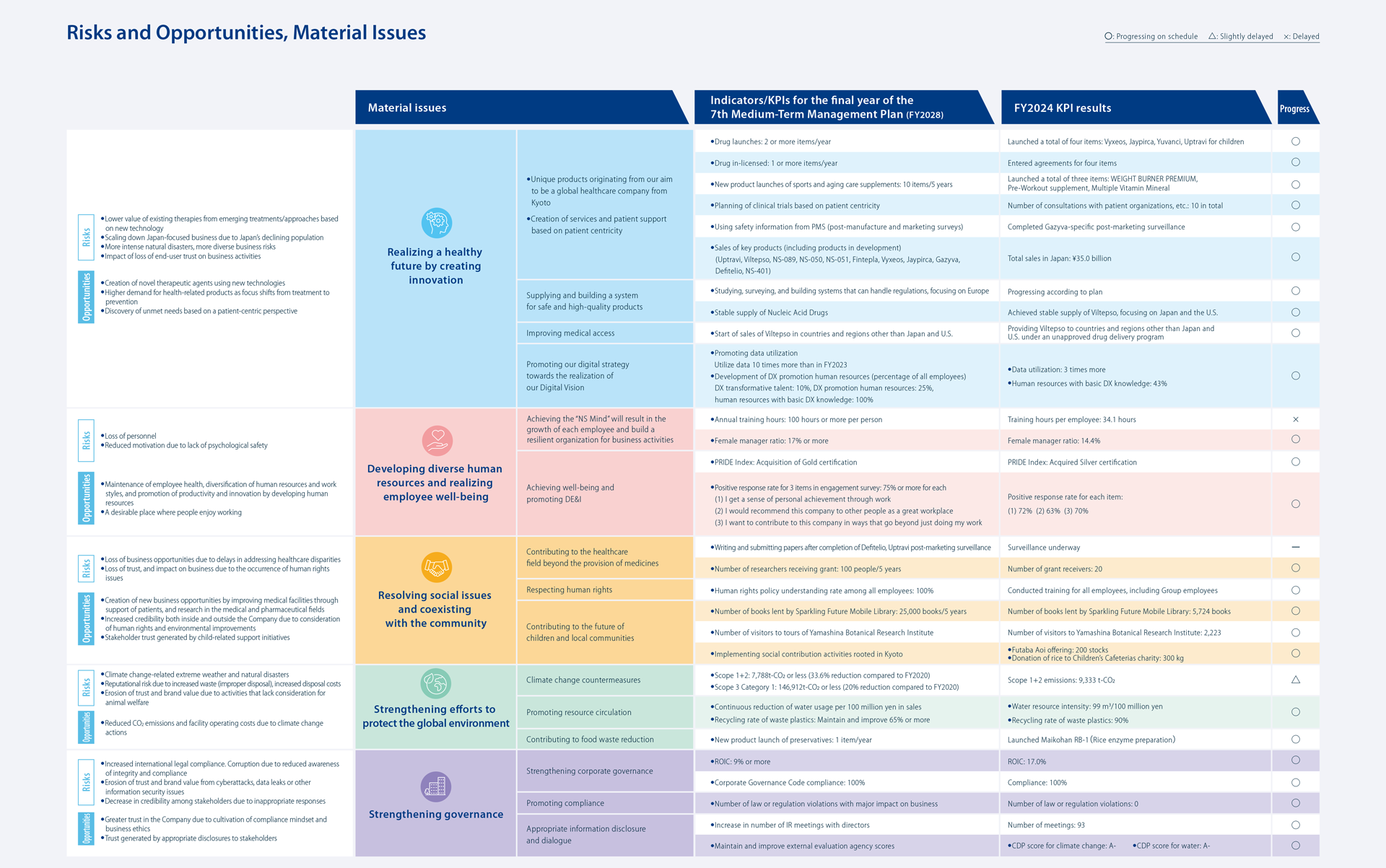In April 2021, the Nippon Shinyaku Group determined the missions it should accomplish for society and stakeholders and identified 19 items as issues of materiality, which the Group considers important in solving social issues and creating value.
In March 2023, the Group reviewed its issues of materiality against the background of further growth in the importance of sustainability worldwide and drastic changes in the Group’s business environment.
To respond flexibly to changes in the social environment, we will continue to review our issues of materiality and further promote our initiatives to solve them with a view to being able to continuously create value.
Processes to determine issues of materiality
To determine the Nippon Shinyaku Group’s issues of materiality, we employed the approach of identifying the issues from a medium- to long-term viewpoint and followed the steps below. These processes will be updated as necessary according to changes in society, as well as changes in our stakeholders’ expectations of Nippon Shinyaku.
Listing issues
Issues of Nippon Shinyaku Group were listed based on two perspectives as follows:
- Issues that are derived by reference to international guidelines and standards, such as ISO 26000, GRI Standards, and SDGs
- Issues associated with “risks and opportunities” in promoting businesses, which are derived by analysis of social situations, the market environment, and our internal condition
Assessing importance of issues
The listed issues were assessed from two perspectives: stakeholders’ perspective (the degree of impact on/priority for activities of each stakeholder) and Nippon Shinyaku Group’s perspective (the degree of impact on/priority related to business strategies, etc.). The results were mapped on a graph to define the issues of materiality.

Formulating plans and obtaining approval
For each of the defined materiality issues, under the initiative of the relevant department in charge of promotion, quantitative and qualitative goals were set, and promotion plans to achieve the goals were formulated.
The goals and plans formulated were reviewed by the CSR Committee and then approved by the Board of Directors. For the goals and plans, the Committee periodically checks their progress in implementation to improve the activities as necessary.








